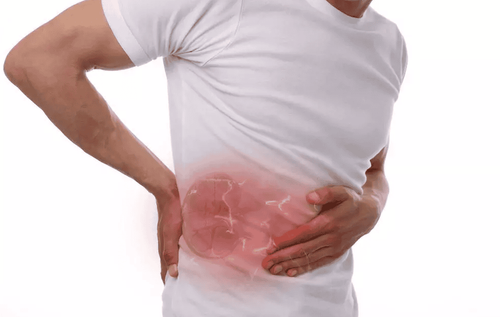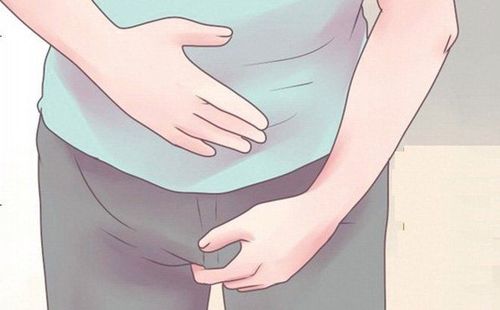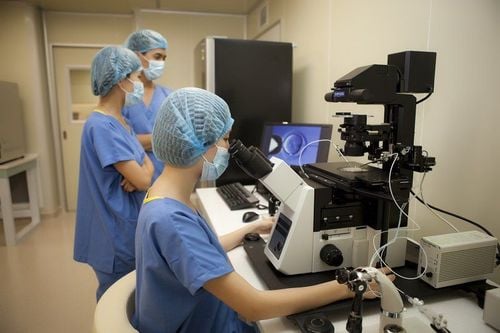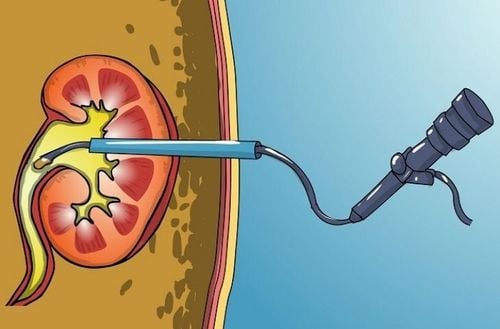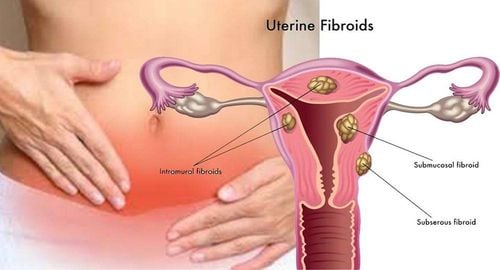This article includes professional advice from doctors at the General Surgery Department and Anesthesia and Resuscitation Department, Vinmec International Hospital in Hai Phong.
Prostate cysts are a fairly common disease in men. According to statistics from the Ministry of Health, up to 50% of men aged 60-70 suffer from this disease. Most cases of benign prostate cysts are not dangerous.
1. What is a prostate cyst?
The prostate is an organ that maintains the species, plays an important role in secretion, and is only found in men. Prostate cysts are a condition in which the cells in the prostate grow excessively, thickening the gland wall or these cells form a septum in the bladder.
When the cysts grow larger, they cause prostate cysts. These cysts can form due to congenital or acquired causes such as infections, parasites, etc.
Prostate cysts are classified into 6 groups:
Parenchymal cysts; Solitary midline cysts (in the Mullerian duct and the oval sac); Ejaculatory duct cysts; Abscesses; Cysts; Cysts associated with parasitic diseases (schistosoma).
2. Causes of Prostate Cysts
Congenital: Cysts can form early because during fetal development, the prostate gland is disordered, causing the duct to narrow, block, and accumulate waste in the body. Over time, they accumulate and form cysts in the prostate gland.
Due to inflammation: If prostatitis is not treated early, it will become chronic. The symptoms of inflammation cause cells to proliferate, causing the gland to narrow and retain water to form cysts.
Due to parasites: Usually, parasites that cause cysts are mainly cysts. They cause inflammation in the prostate duct and surrounding area, leading to cyst formation.
Secondary causes: Fibrosis of the soft tissues of the prostate gland causes these tissues to be partially or completely blocked. Over time, this cushion tissue thickens, forming cysts measuring 1-2cm in size. Common locations can be in the bladder neck or prostate.
3. Are prostate cysts dangerous?

The prostate is an organ located below the bladder and surrounding the urethra, playing an important role in the male reproductive and urinary systems. In particular, the prostate also affects reproductive function.
Most cases of benign prostate cysts are not dangerous and heal on their own after a few months. However, there are cases where the tumor does not heal on its own but gradually grows into a malignant cyst. If not detected and treated promptly, it can cause health complications, even infertility in men.
Some common complications of the disease:
May cause anal stenosis, urinary retention, impaired kidney function, and urinary tract infections;Causing orchitis due to bladder, rectum, and perineum being affected; Causing urinary dysfunction, possible urinary tract infections, forming stones, making difficulties in excretion.
4. Care for patients with prostate cysts

To quickly improve the condition of prostate cysts, care during and after treatment is essential.
4.1. Establish a reasonable diet
Diet plays an extremely important role in the recovery and prevention of the disease. To prevent and stop the tumor from recurring, patients need to:
Increase the use of foods processed from mussels; Increase the use of foods derived from fish, especially foods rich in zinc; Regularly eat fresh fruits and vegetables, especially foods rich in vitamins A, B, and C; and foods rich in antioxidants.
4.2. Establish a suitable healthy lifestyle
One of the factors that promotes the development of the disease is lifestyle. Therefore, to prevent and support the body to recover quickly, patients should:
- Regularly exercise to increase resistance and prevent pathogens;
- Limit heavy manual labor and sitting for too long to avoid fluid retention and pelvic congestion;
- Abstain from sex for 100 days during treatment to avoid prostate damage;
- Regular health check-ups to prevent and check the condition of the disease;
- Drink plenty of water to help purify the body and prevent and minimize symptoms of the disease.
For those who have been examined and applied treatment regimens, patients should:
- Drink plenty of water during the day to purify the urethra; combine with abdominal massage to avoid constipation to avoid affecting the wound in the prostate;
- Limit the use of spicy foods and stimulants; otherwise, the wound will be difficult to heal and become more serious.
Most prostate cysts are benign and heal on their own; however, some cases do not heal and must be treated with medication, surgical removal, aspiration, drainage, etc. In addition, some physical therapy methods can also be applied.
At Vinmec International General Hospital, there is a urinary examination and screening service that helps customers detect diseases early, have effective treatment measures, and prevent dangerous complications. When choosing a urinary examination and screening package at Vinmec, customers will receive:
- a urology examination,
- urinary ultrasound,
- total PSA quantification,
- free PSA measurement,
- and a urine culture test
To help detect early possible urinary tract infections. Especially prostate diseases (benign prostatic hyperplasia, prostate cancer) and urinary stone diseases, etc. thereby helping customers have preventive measures.
Please dial HOTLINE for more information or register for an appointment HERE. Download MyVinmec app to make appointments faster and to manage your bookings easily.




